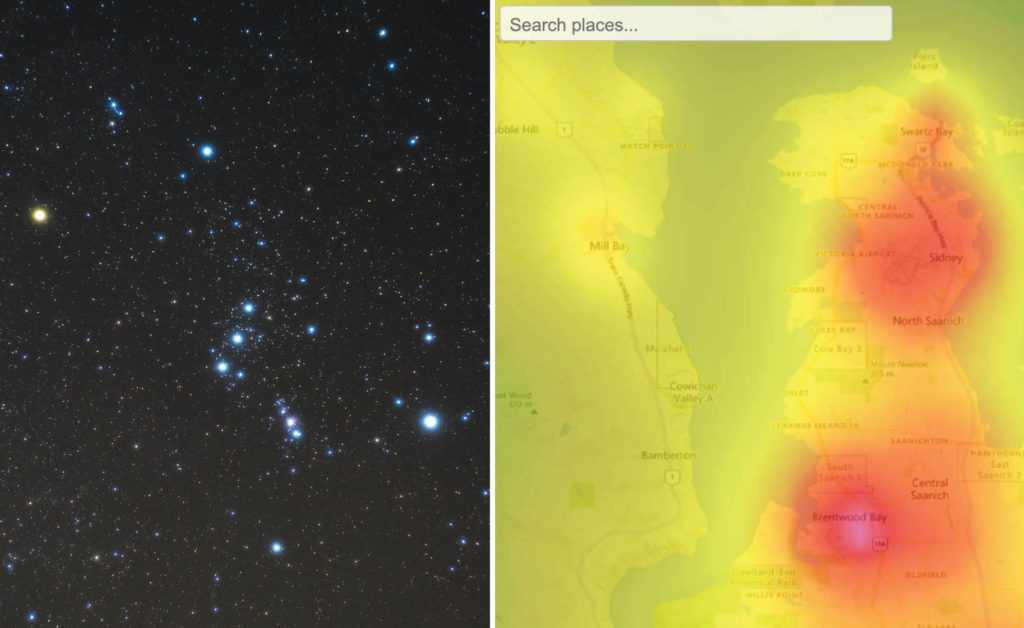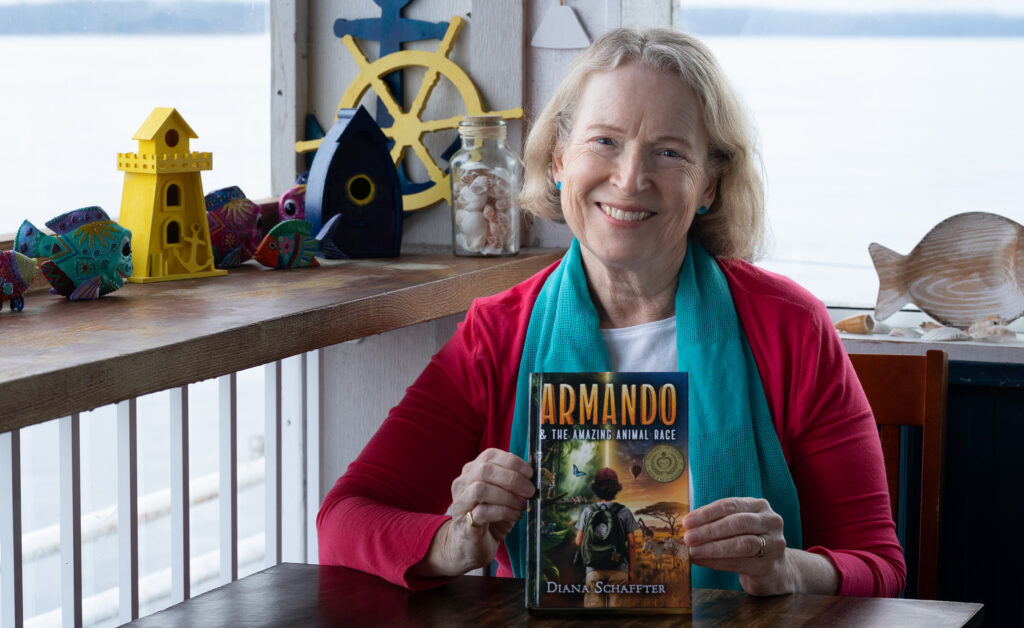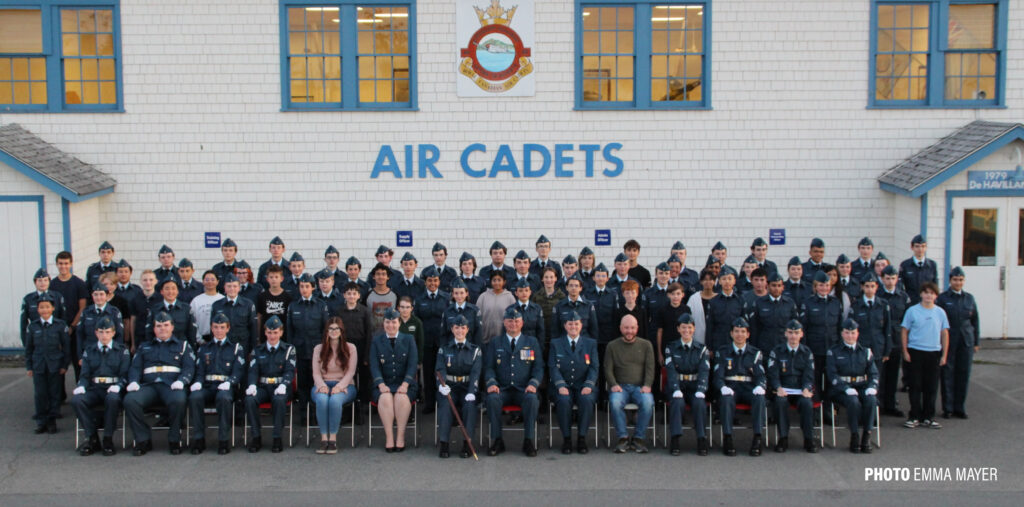by Sheila Molloy –
Even with the mild winters on the Peninsula, it is easy to want to stay in by a warm fire in January and hibernate.
But with a combination of cold air and clear nights, you now have a great reason to get outside this winter for some epic stargazing.
Admittedly, you may need to muster up some motivation and warm outwear but once you get outside, winter will reward you with some of the best stargazing of the entire year!
Winter nights (when not overcast) will be very clear as cold air holds less moisture and ensures a less watery haze in the air. The nights also get darker earlier, which is a benefit for bringing the kids along for a stargazing adventure well before their bedtime.
While places like Cattle Point in Oak Bay or our local Dominion Astrophysical Observatory offer well-known opportunities for dark and starry skies, our Peninsula has some great spots as well.
Prime Peninsula Locations
Your first stop is to find a prime viewing location which can be done quite easily using the light pollution map at right (www.lightpollutionmap.info) to guide you to areas that are not disturbed by too much light.
We found the beach accesses around Lands End Road, Deep Cove and Ardmore to be quite good. On the other side, Island View Beach and Saanichton Bay Park were also good. We like the big skies and views around Durrance Lake and along Willis Park Road. Generally, Gowland Tod Provincial Park was a great place with less light pollution but still some car traffic, so find places away from the parking lot. If you are into some night hiking, Timberman Trail to Squally Reach Viewpoint tops the areas with low light pollution and a great open sky.
What to Look for
Orion! It is so easy to spot Orion the Hunter, one of winter’s most easily recognizable constellations (see image at left). Canadian space agency has a star finder map you can download (https://tinyurl.com/ewc32zxf). If you want a more immersive experience, there are many free smartphone apps for interactive star finding (we used SkyView).
What to Bring
Bring snacks, hot cocoa or tea, blankets, chairs, extra warm clothing and whatever you would normally take on a picnic. You can stargaze with the naked eye, but a pair of binoculars or a small telescope are handy. It is helpful to put red cellophane over your flashlight as it is less obtrusive and helps you keep your night vision.
Things to Note
• Space.com lists great skywatching target with information: https://tinyurl.com/2fchsr99.
• The Canada Space Agency has some very handy stargazing tips: https://tinyurl.com/2zex2una.




